This biography of Edgar Allan Poe, a giant of American Literature who invented both the horror and detective genre, is a portrait of extremes: a disinherited heir, a brilliant but underpaid author, a temperate man and uncontrollable addict.
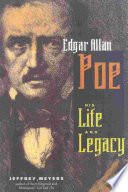
Average Rating
Informations
About the author
Jeffrey Meyers
Author
Jeffrey Meyers is an American biographer and literary, art, and film critic.
Edgar Allan Poe
by Jeffrey Meyers
Books Like Edgar Allan Poe
If you're looking for books similar to Edgar Allan Poe, here are some recommendations based on themes, tone, and narrative style.
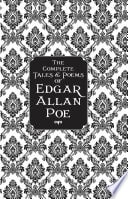
The Complete Tales and Poems of Edgar Allan Poe
Edgar Allan Poe
A comprehensive collection of Poe's most haunting and influential works, showcasing his mastery of gothic horror and psychological depth. Includes iconic stories like 'The Tell-Tale Heart' and 'The Raven', which explore themes of madness, guilt, and the human psyche. This collection reveals Poe's groundbreaking contributions to literature, demonstrating his unique ability to create intense psychological narratives that continue to influence writers today.
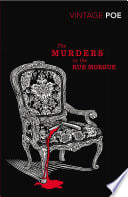
The Murders in the Rue Morgue
Edgar Allan Poe
Poe's groundbreaking detective story that essentially invented the modern detective genre. The narrative follows C. Auguste Dupin, a brilliant amateur detective who solves a seemingly impossible murder through pure logical reasoning. This work demonstrates Poe's extraordinary ability to blend psychological insight with intricate mystery, laying the groundwork for future detective fiction.
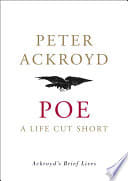
Poe: A Life Cut Short
Peter Ackroyd
A compelling biographical exploration of Poe's tumultuous life, delving into his literary genius and personal struggles. Ackroyd provides intimate insights into Poe's challenging relationships, his battle with addiction, and his revolutionary literary contributions. The book offers a nuanced portrait of a complex artist who transformed American literature through his innovative storytelling and psychological depth.
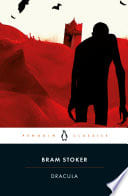
Dracula
Bram Stoker
A gothic horror novel that shares Poe's fascination with psychological terror and the darker aspects of human nature. The story explores themes of supernatural evil, psychological manipulation, and the battle between good and darkness. Stoker's narrative style and exploration of psychological complexity echo Poe's influential approach to horror literature.
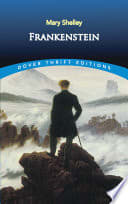
Frankenstein
Mary Shelley
A pioneering gothic novel that, like Poe's work, explores psychological complexity and the darker dimensions of human experience. The story examines themes of scientific ambition, moral responsibility, and the psychological torment of creation and rejection. Shelley's profound psychological exploration and gothic sensibilities strongly resonate with Poe's literary approach.
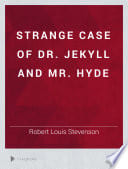
The Strange Case of Dr. Jekyll and Mr. Hyde
Robert Louis Stevenson
A novella that examines the duality of human nature, echoing Poe's fascination with psychological complexity and inner darkness. The story explores the struggle between good and evil within a single individual, presenting a nuanced psychological portrait of human potential for transformation. Stevenson's narrative style shares Poe's interest in psychological depth and moral ambiguity.
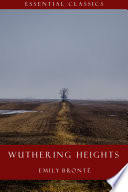
Wuthering Heights
Emily Bronte
A gothic novel exploring psychological intensity and destructive passion, reminiscent of Poe's emotional depth. The story examines complex psychological relationships, revenge, and the dark side of human emotion. Bronte's exploration of psychological complexity and gothic atmosphere strongly resonates with Poe's literary approach.
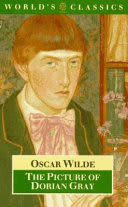
The Picture of Dorian Gray
Oscar Wilde
A psychological thriller that explores moral corruption and the human capacity for darkness, reminiscent of Poe's psychological narratives. The novel delves into themes of identity, sin, and the psychological consequences of unchecked desire. Wilde's exploration of inner psychological landscapes and moral decay reflects Poe's interest in human complexity.

The Turn of the Screw
Henry James
A psychological ghost story that shares Poe's interest in psychological ambiguity and supernatural tension. The narrative explores the psychological state of its narrator, blurring lines between reality and imagination. James's subtle psychological exploration and gothic undertones reflect Poe's innovative narrative techniques.
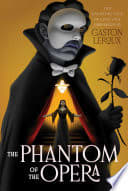
The Phantom of the Opera
Gaston Leroux
A gothic narrative exploring psychological obsession and hidden darkness, similar to Poe's thematic interests. The story delves into themes of unrequited love, psychological manipulation, and the complexity of human desire. Leroux's exploration of psychological depth and gothic atmosphere echoes Poe's narrative style.
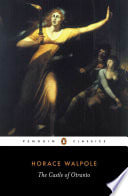
The Castle of Otranto
Horace Walpole
Considered the first gothic novel, it shares Poe's fascination with supernatural elements and psychological tension. The narrative explores themes of supernatural intervention, psychological complexity, and moral consequence. Walpole's pioneering approach to gothic storytelling laid groundwork similar to Poe's innovative narrative techniques.
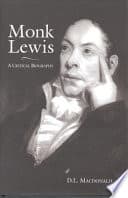
The Monk
Matthew Lewis
A gothic novel exploring psychological corruption and supernatural elements, resonating with Poe's thematic interests. The story delves into themes of moral decay, psychological temptation, and the darker aspects of human nature. Lewis's exploration of psychological complexity and gothic horror reflects Poe's narrative approach.
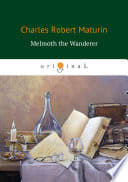
Melmoth the Wanderer
Charles Maturin
A complex gothic narrative exploring psychological torment and supernatural elements, similar to Poe's literary style. The story examines themes of existential despair, psychological complexity, and the boundaries between human and supernatural experience. Maturin's profound psychological exploration echoes Poe's innovative narrative techniques.
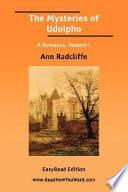
The Mysteries of Udolpho
Ann Radcliffe
A foundational gothic novel that explores psychological tension and supernatural mystery, reminiscent of Poe's narrative approach. The story delves into themes of psychological fear, hidden secrets, and the power of imagination. Radcliffe's exploration of psychological complexity and gothic atmosphere strongly resonates with Poe's literary style.
No account connected — sign in to comment.
